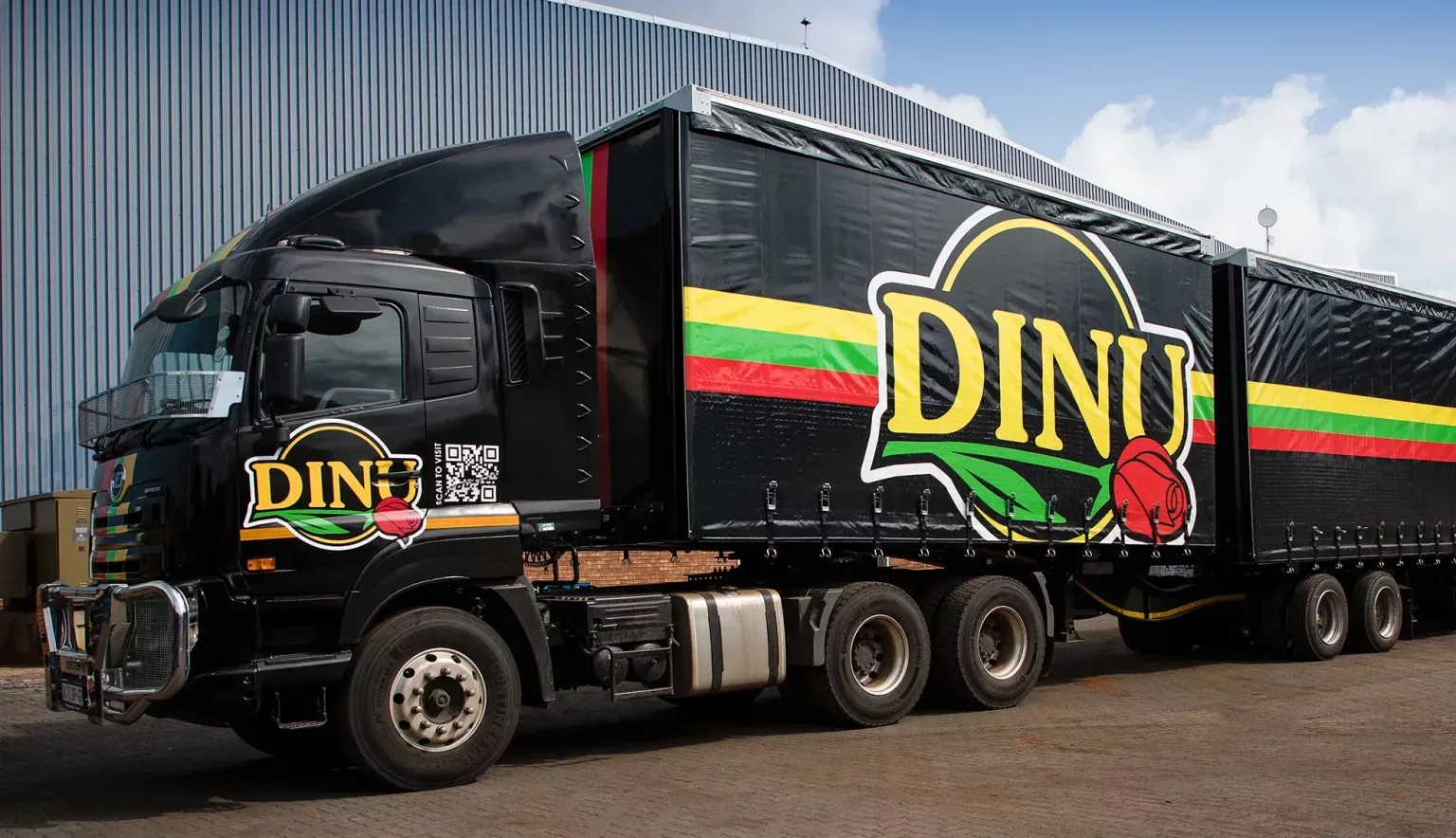Tissue paper products manufactured by Universal Paper and Plastics are improving hygiene across Southern Africa. David Sher, Managing Director, discusses a commitment to personal hygiene.
INTRODUCTION
Tissue paper plays an important role when it comes to hygiene.
From kitchen and toilet roll to napkins and serviettes, tissue paper helps to prevent the spread of dirt and germs. Quite simply, it is an easy and affordable way to achieve cleanliness.
“Our mission is to develop innovative, everyday products that meet the hygienic needs of our customers,” opens David Sher, Managing Director of Universal Paper and Plastics (UPP) since March 2020.
“UPP is improving the state of hygiene across Southern Africa, by providing high-quality tissue paper products that utilise the latest technologies.”
Motivated, passionate and driven to make a positive impact, Sher joined UPP in 2009 after graduating from the University of Pretoria, progressing through the family business in a variety of marketing, planning, production and management roles.
He and his brother, Jonathan, were exposed to tissue paper manufacturing from an early age, having regularly visited the UPP factory growing up in South Africa.
“It was always a special occasion as we loved to help pack boxes with the staff. I think those memories helped define our passion and interest in the business, as we felt like we belonged,” Sher, a fourth-generation member of the family, reflects fondly.
“The Sher legacy at UPP is now 72 years strong, and as a family business, we understand the needs of South African and corporate families. Each generation has experienced different challenges and overcame them in a very resilient manner with a persevering attitude.”
Today, South Africa has some major challenges, especially when it comes to government regulations and unnecessary red tape. With more conducive policies, it could help to stimulate business growth and enable South African companies such as UPP to compete on a global scale.
Currency volatility is another major challenge, as UPP receives its pulp pricing based on the dollar rate. The ongoing energy crisis is also impacting the heat generation needed to dry wet pulp into tissue paper, whilst most companies in South Africa are having to contend with crime and skills shortages.
Despite the challenges, Sher is equally optimistic about the opportunities in the continent. “There is still so much opportunity in Africa. The importance of understanding how people purchase and the most efficient channels to supply goods to the end consumer is a key requirement for success,” he states.
“We believe that by diversifying our portfolio and supplying tissue paper products to a variety of customers, we can achieve the best possible business continuity.
“The COVID-19 pandemic was a clear reminder of the importance of diversified channels. As Africans, we must be flexible and expect the unexpected so that we can move to solve whatever challenge is in front of us in that moment. Southern Africa is a dynamic and rapidly changing market that requires assertive and fast-paced decision making,” Sher adds.

“Our mission is to develop innovative, everyday products that meet the hygienic needs of our customers”
David Sher, Managing Director, UPP
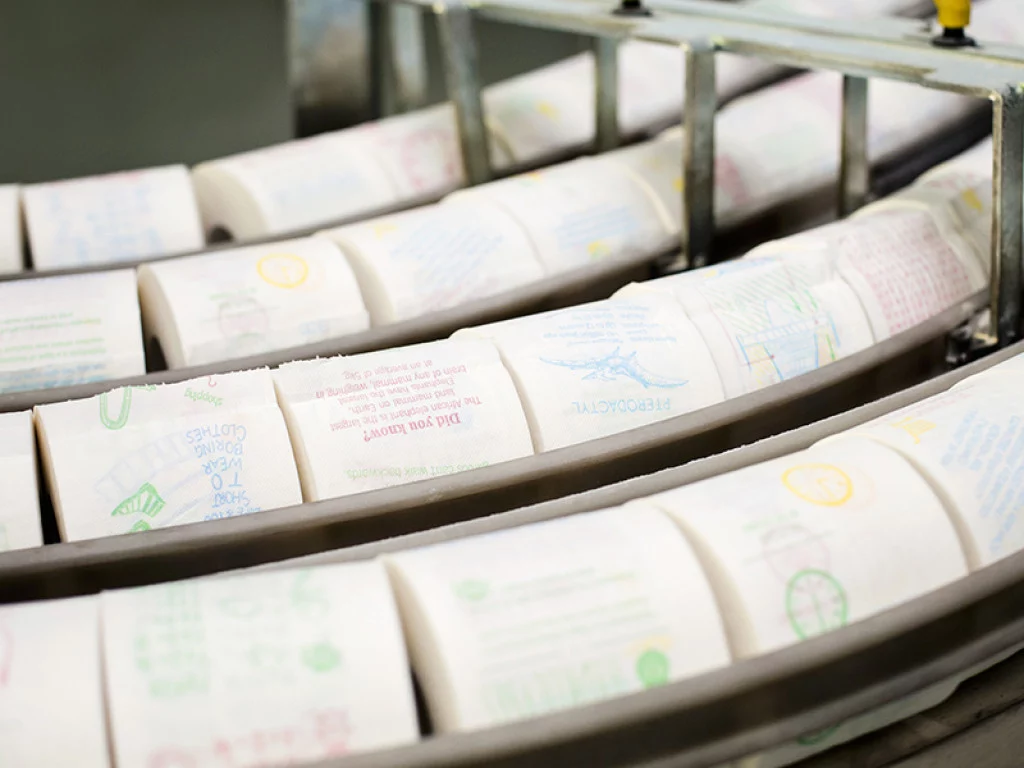
PREFERRED TISSUE PAPER
From humble beginnings converting basic serviette products, UPP developed its production machines to be able to operate more efficiently, before focusing on the expansion of its product portfolio.
For example, new product ranges recently launched by UPP include Dinu 4-ply bathroom tissue, Dinu 3-ply household towel, and Dinu Professional 200 sheet mini rolls.
Established in 1980, Dinu is a prominent retail household tissue brand and has been the leading premium napkin brand in South Africa for a number of years.
Elsewhere in the UPP brand portfolio, Dinu Professional caters for the specific business needs of the wholesale, hotel, and hospitality industries, offering a large range of fully customisable tissue paper products.
Diamond designer napkins, meanwhile, are exclusively available from specialty stores and retailers, bringing a touch of class to every occasion and making a premium statement of style. Diamond provides high-quality napkins with creative prints to consumers who appreciate the finer things in life.
“Our main brand is Dinu for the formal retail market, and Dinu Professional for away-from-home and informal markets. Our most popular products are toilet paper, kitchen towels, serviettes and napkins,” Sher says.
“UPP’s vision is to become the preferred supplier of tissue paper products in Southern Africa, by listening and responding to our customers’ needs.”
With approximately 400 employees spanning a number of business units, including Universal Paper Manufacturers (UPM) and Universal Inks, UPP’s inspired and skilled people utilise the latest technologies, processes, and systems to create quality products.
Sher highlights a new lamination technology, which UPP is proud to have developed in order to improve its environmental impact as well as reduce costs.
“We recently earned our ISO 9001:2015 certification, and this was a very successful project that is testament to the hard work and efforts of all our staff,” he admires.
“We have also found new ways to pack our products in order to improve the truck utilisation and stability of product loads. Our multiple cross-functional teams of people focus on various areas of the business, solve problems, and improve processes; we believe in a diversified approach to projects whereby we collaborate different skills and expertise, so that people learn from each other and ultimately produce their best work.”
Likewise, data analytics and automation, including optimised robotics, is helping to improve UPP’s production efficiency and capacity.
The company has installed an automated pallet wrapper at the end of its converting process, helping to wrap palleted products more tightly and efficiently.
“The impact is that we can get more products onto a truck, as well as store more pallets in our warehouses. We have introduced pallet inverters in our supply chain, which moves stock from different pallets more efficiently and saves on handling time,” notes Sher.
“We believe that by diversifying our portfolio and supplying tissue paper products to a variety of customers, we can achieve the best possible business continuity”
David Sher, Managing Director, UPP
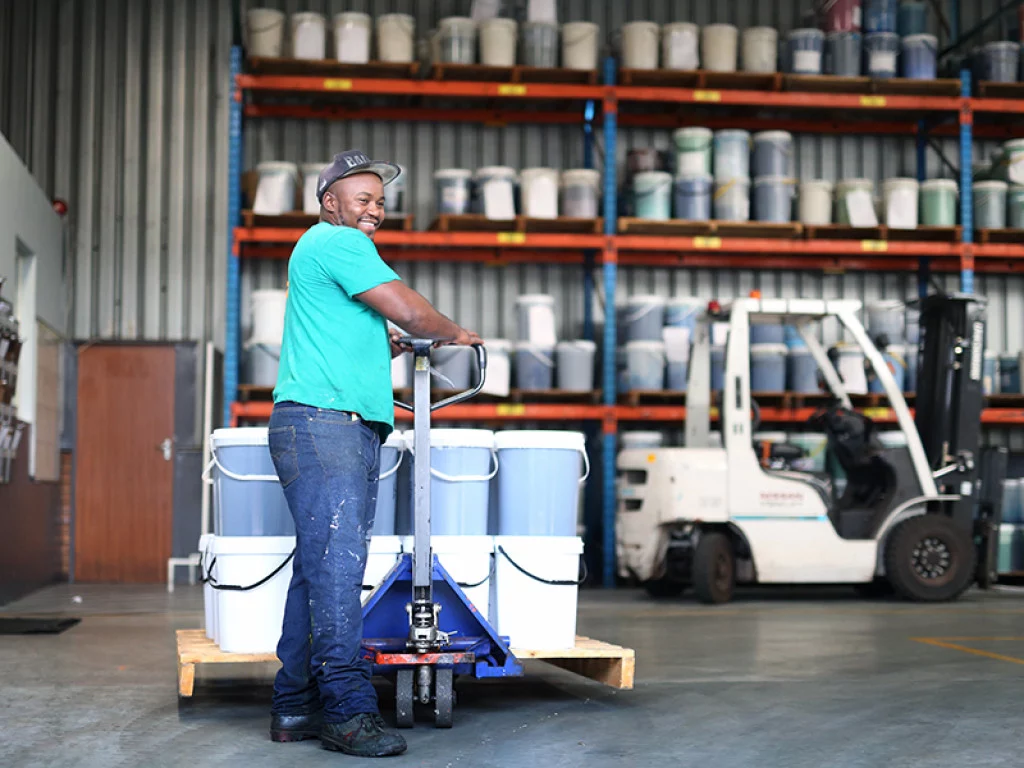
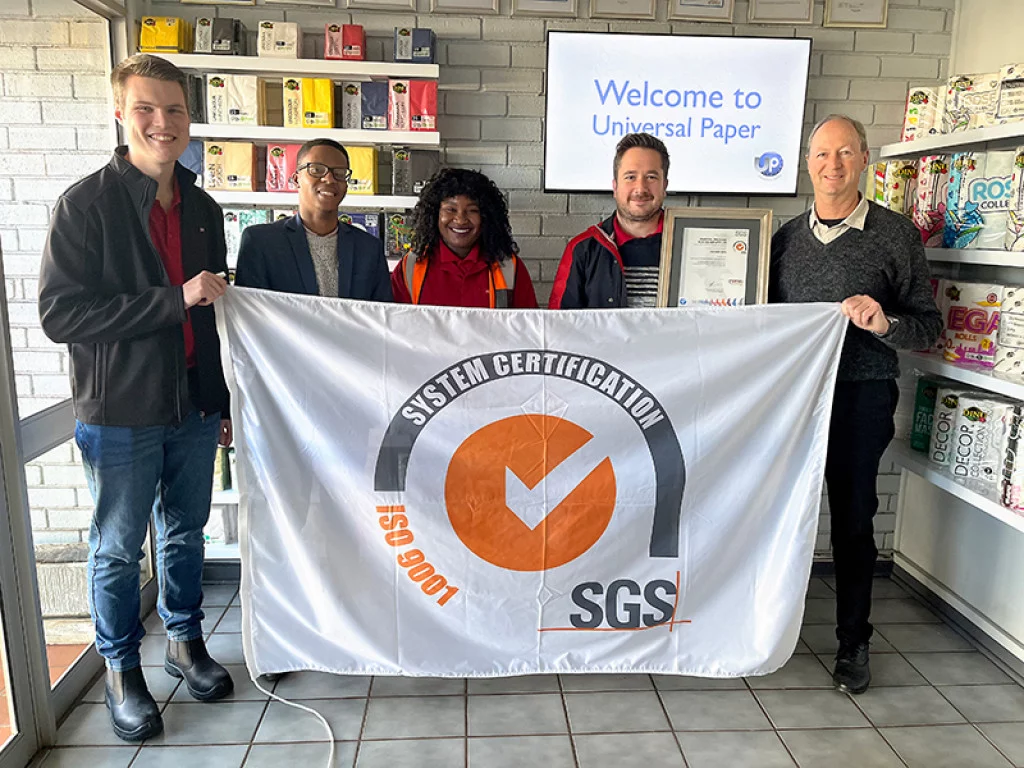
INVEST TO IMPROVE
In 2021, UPP purchased and refurbished its new, centralised distribution centre in Ga-Rankuwa.
A converted leather manufacturing facility, the distribution centre has improved UPP’s ability to load more trucks, store more products, and operate more efficiently. With greater visibility of its stock, the company can also plan more effectively to improve its overall fill rates to customers.
“We faced great challenges throughout the project, but the team did a phenomenal job in preparing the site on time,” Sher tells us.
This year, a new solar project generating 10 percent of the company’s required energy has significantly reduced UPP’s fossil fuel dependency.
The future of renewable energy is an exciting one, as UPP looks to become greener in the way it harnesses its energy production and consumption.
“We are looking to invest more in solar power. We still have roof space that will help us to be more energy efficient and environmentally friendly,” reveals Sher.
“Fortunately, there is a lot of sun in our area, and we will certainly look to optimise this by harnessing more solar power. South Africa is facing an energy crisis, so this project is very important for us and the country as we look to put less pressure on the grid.
“This would not be possible without a good solar system provider, and our bank. We are busy with a few optimisation projects designed to improve the operational efficiency within our supply chain,” he continues.
On UPP’s move to a centralised supply chain, Sher recognises the positive impact it has had on the business.
Alleviating the unnecessary time and money spent on the movement of additional stock, UPP has streamlined its operations so that it can operate more independently from the production departments, improving the company’s ability to deliver on-time and mitigate the rising input costs faced in the last 12 months.
“The number of times we handle stock, and the distance that stock has to travel before it’s ready for the final customer, is an important metric that we measure ourselves against,” Sher explains.
“Our business is only successful because of our healthy relationships with our staff, suppliers and partners. Without these relationships, we would have no business.”
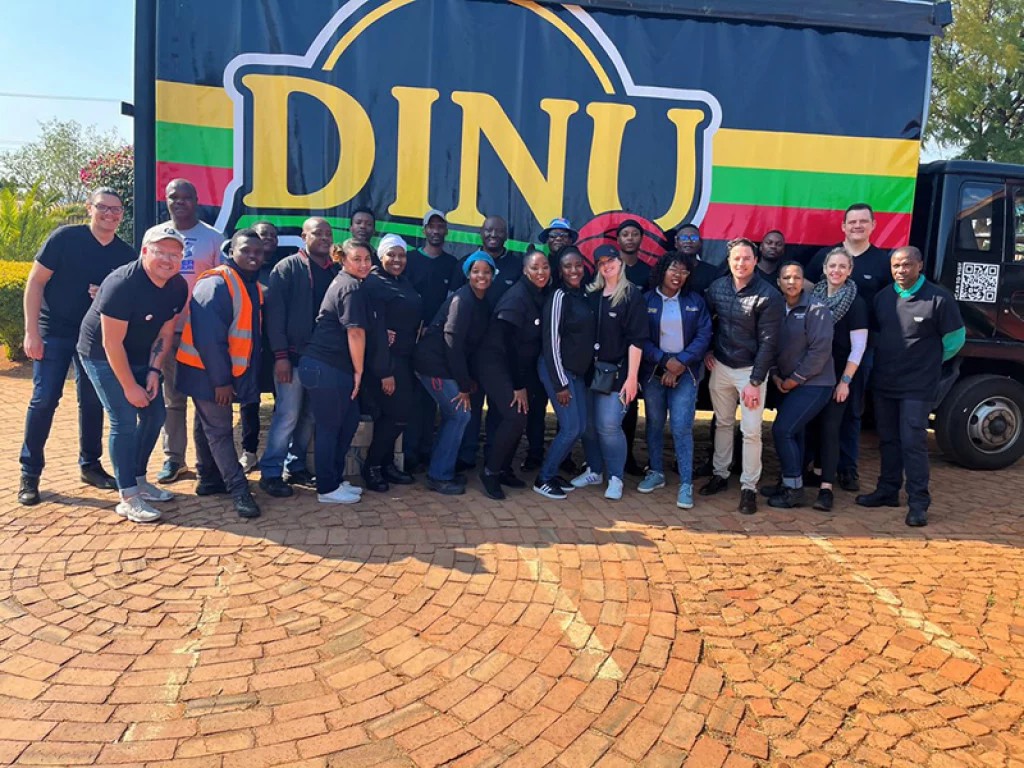
TEAM EFFORT
Responsible for UPP’s supply chain, sales, finance, HR and SHEQ (safety, health, environment and quality) departments, Sher has been blessed to lead what he describes as “an amazing team of people.”
UPP strives to create an environment in which it recruits the best type of employees, who understand the importance of teamwork and realise that greater success can be achieved collectively.
Utilising its four company values – integrity, commitment, empowerment, and excellence – UPP promotes a positive and enthusiastic work ethic.
“These values have been pivotal in how we objectively reward and promote our employees,” emphasises Sher.
“We emphasise what has been done in the past, and what defines our company in the future. Our staff are empowered to appreciate and be proud of our heritage, so they find a common purpose that drives the business forwards in a proactive and effective manner.”
A structured Personal Development Planning (PDP) process has been introduced in the past year, encouraging employees to tune in with who they are, where they are currently in their career, and ultimately what they want to work towards in the future.
Sher acknowledges the phenomenal work of UPP’s HR department in developing and rolling out the system, with all available channels used to encourage PDP participation.
“It all comes down to whether staff want that promotion badly enough. If they do, they will work even harder on their PDP to convince others to help them achieve their career objectives,” he details.
“We believe in the power of unlocking one’s true potential, by helping others to see what they are capable of and supporting them to achieve a collective goal. The tissue paper industry is a unique global family and I’ve met some influential people in my time that have had a profound impact on who I am today.”
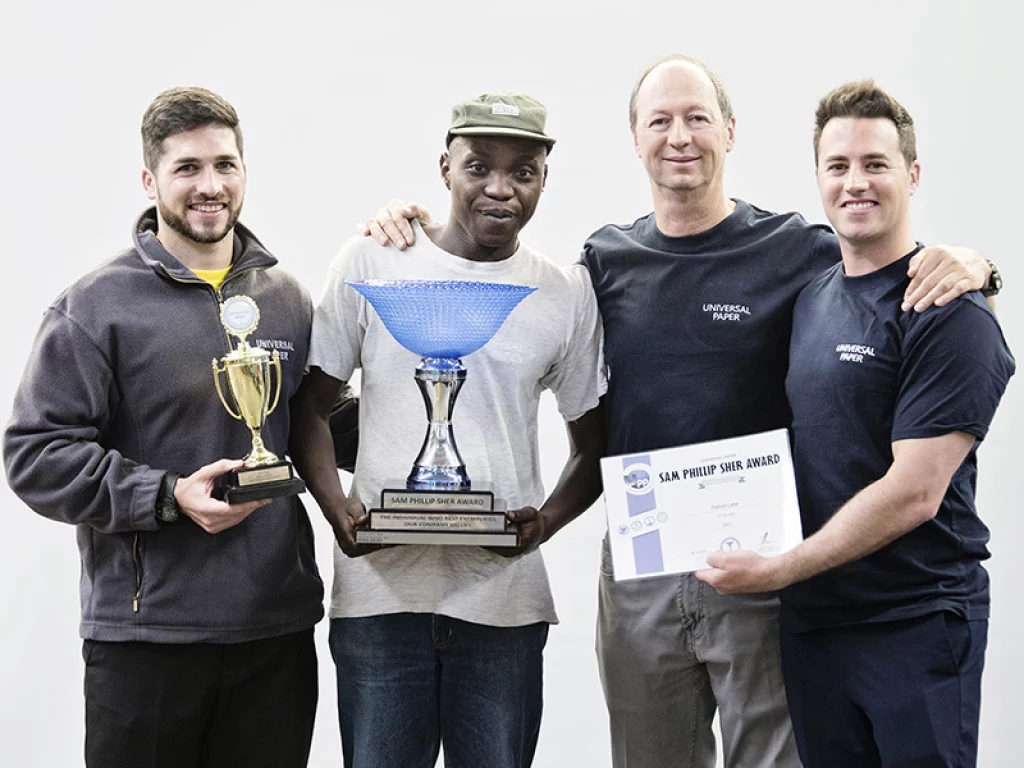
CONTROLLING COSTS
The Sher family has always had the goal of growth in mind, and aims to keep the business within the family for future generations.
For the remainder of 2022 and beyond, UPP is looking to focus on costs that are within its control, and find further innovations that will enable the company to reduce fixed overhead expenses.
“Rapidly rising costs in all aspects of business are adding significant pressure. We aim to develop our unique high-performance culture, and diversify our revenue streams where possible,” Sher outlines.
“As we develop our in-house expertise, we will look to commercialise certain functions that may help us grow economic activity where possible in Africa.”



